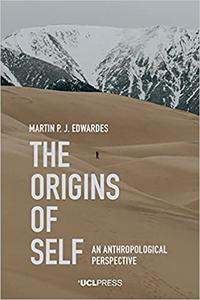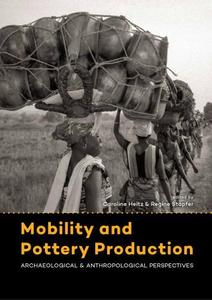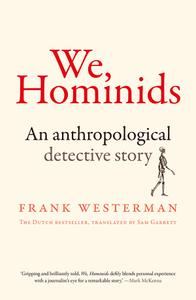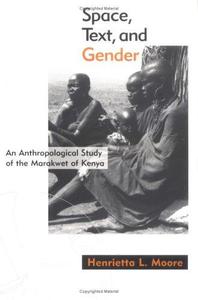

E-Books → Anthropological Lives An Introduction to the Profession of Anthropology
Published by: voska89 on 9-09-2021, 12:50 |  0
0

Virginia R Dominguez, "Anthropological Lives: An Introduction to the Profession of Anthropology"
English | ISBN: 0813597390 | 2020 | 200 pages | PDF | 5 MB
Anthropological Lives introduces readers to what it is like to be a professional anthropologist. It focuses on the work anthropologists do, the passions they have, the way that being an anthropologist affects the kind of life they lead. The book draws heavily on the experiences of twenty anthropologists interviewed by Virginia R. Dominguez and Brigittine M. French, as well as on the experiences of the two coauthors. Many different kinds of anthropologists are represented, and the book makes a point of discussing their commonalities as well as their differences. Some of the anthropologists included work in the academy, some work outside the academy, and some work in institutions like museums. Included are cultural anthropologists, linguistic anthropologists, medical anthropologists, biological anthropologists, practicing anthropologists, and anthropological archaeologists. A fascinating look behind the curtain, the stories in Anthropological Lives will inform anyone who has ever wondered what you do with a degree in anthropology.
E-Books → The Origins of Self An Anthropological Perspective
Published by: voska89 on 19-08-2021, 06:22 |  0
0

Martin P. J. Edwardes, "The Origins of Self: An Anthropological Perspective"
English | 2020 | ISBN: 1787356329, 1787356310 | 248 pages | PDF | 2.8 MB
The Origins of Self explores the role selfhood plays in defining both human society and each individual in that society. It considers the genetic and cultural origins of self, the role that self plays in socialization and language, and the types of selves we generate in our individual journeys to and through adulthood. Martin P. J. Edwardes argues that other-awareness is a relatively early evolutionary development, present throughout the primate clade and perhaps beyond, but self-awareness is a product of the sharing of social models, something only humans appear to do. The self of which we are aware is not something innate within us, it is a model of our self produced as a response to the models of us offered to us by other people. Edwardes proposes that human construction of selfhood involves seven different types of self. All but one of them are internally generated models, and the only nonmodel, the actual self, is completely hidden from conscious awareness. We rely on others to tell us about our self, and even to let us know we are a self. Developed in relation to a range of subject areas-linguistics, anthropology, genomics, and cognition, as well as sociocultural theory-The Origins of Self is of particular interest to students and researchers studying the origins of language, human origins in general, and the cognitive differences between human and other animal psychologies.
E-Books → Mobility and Pottery Production Archaeological and Anthropological Perspectives
Published by: voska89 on 7-08-2021, 21:36 |  0
0

Mobility and Pottery Production Archaeological and Anthropological Perspectives By Heitz, Caroline; Stapfer, Regine
2017 | 320 Pages | ISBN: 908890460X | PDF | 22 MB
For many past and present societies, pottery forms an integral part of material culture and everyday practice. This makes it a promising case example to address human-thing-relations on a more general level, as well as social life itself. Humans organise their lives not only by engaging with materials and things but also by oscillating between movement and stasis. In these various rhythms of mobility - from daily subsistence-based movements to long-term migrations - things like ceramic vessels are crafted, but also act as consumer goods. From their production until their deposition as waste, grave-goods, collectibles etc. pottery vessels can move with their owners or be passed on and may thus shift between spatial, temporal, social, economic and cultural contexts.This volume unites contributions addressing such phenomena from archaeological and anthropological perspectives. Evolved from an interdisciplinary workshop held at the Institute of Archaeological Sciences (University of Bern) in 2015, the aim is not to promote one single epistemic approach or any elaborated empirical findings but to trigger thoughts and foster discussions.While the first part of the book contains introductory texts, the second part includes archaeological contributions that address mobility and social ties by focussing on variability in pottery production within, as well as between, settlements and regions. Taking a more object-centred perspective, they comprise attempts to think beyond established concepts of 'archaeological cultures' and chronological issues. The third part unites anthropological and archaeological texts that take more actor-centred perspectives of making, distributing and using pottery. These texts examine how humans and things are intertwined though practices and various rhythms of movement and mobility. Thereby it can be shown how cultural forms are reproduced but also transformed by humans and things, like pots, potters, pottery mongers and pottery users that are intermittently on the move.
E-Books → We, Hominids An Anthropological Detective Story
Published by: voska89 on 5-08-2021, 22:19 |  0
0

We, Hominids: An Anthropological Detective Story by Frank Westerman
English | August 3rd, 2021 | ISBN: 9781743821879 | 256 pages | True EPUB | 1.37 MB
A roving philosophical journey into what makes us human
E-Books → Space, Text, and Gender An Anthropological Study of the Marakwet of Kenya
Published by: voska89 on 25-07-2021, 18:50 |  0
0

Space, Text, and Gender: An Anthropological Study of the Marakwet of Kenya By Henrietta L. Moore
1996 | 257 Pages | ISBN: 0898628253 | PDF | 9 MB
This groundbreaking anthropological study strikingly illustrates how we can use different interpretations of place to learn more about a society, and demonstrates the value of a feminist approach to the analysis of changing systems of representation. Henrietta Moore focuses on the relationship between the organization of household space and gender relations, showing how that relation shifts due to changing social and economic conditions, including such factors as wage labor and education. This updated edition contains a new foreword and afterword in which Moore relates her work to more recent developments around gender, resistance, difference, and spatiality.



